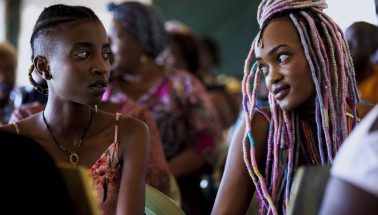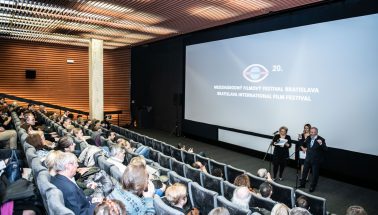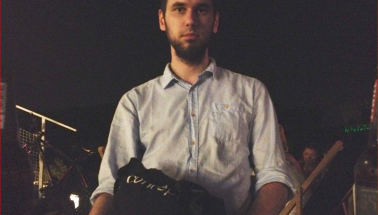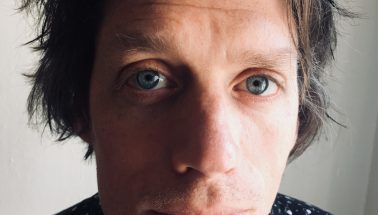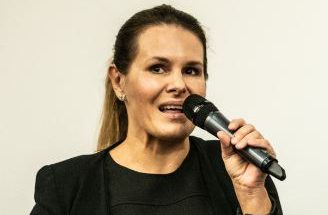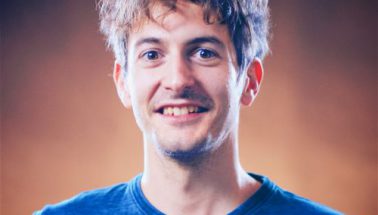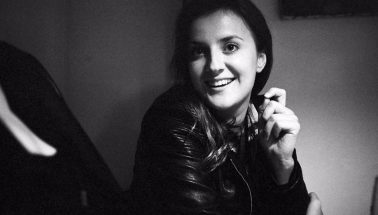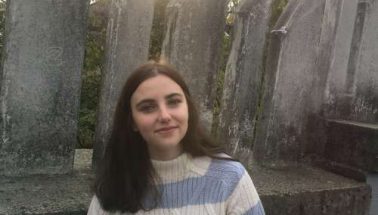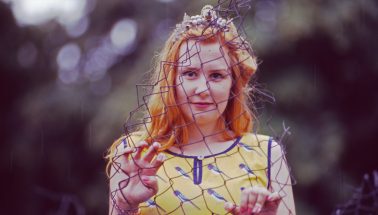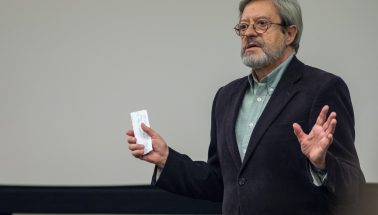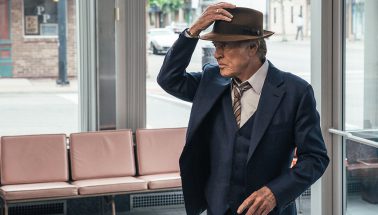Darijan Pejovski (1983) is a young Macedonian film director. He graduated from the Department of Film and TV Directing at the Faculty of Dramatic Arts in Skopje. The audience knows him as a co-writer of the screenplay for a feature fiction film directed by Vladimir Blazevski, Punk´s Not Dead (Pankot ne e mrtov, 2011). Before he directed several short and documentary films. During the International Film Festival Bratislava you could have seen his first feature fiction film Three Days in September (2015).
During the festival you went on the screening of your movie. What were the reactions of the audience?
Well, I think that screening went very well because we had very good audience. There were a lot of young people, students, young actors… Because it is actor´s film in a way… So there was much interest about the performances in the film. I am very glad for that because we focused on this aspect of the film and we worked very hard on it.
You have visited many different festivals. If you could compare the audience what would you say about us?
It is mainly about culture. For example the audience in Chicago – they were asking a lot of questions, they are cinefils, they think a lot about films. The audience in here was much more opened to questions and interested in this field than in,for example, Germany. In Germany, the cinema was full during the Q&A day, but no one asked questions. They just wanted to listen. But here we had a good discussion, so it was very nice.
This was your first fiction film. You have made several short and documentary ones before. How would you compare short documentaries and fiction movies? Are you able to define them?
Feature film is like a marathon, short movies are more like a sprint. The good thing about the short is that you get to the result very quickly and the whole process is very energic, passoniate. The making of feature fiction film is much more methodical and analytical process. I mean, I liked it a lot but you have to be very consciouss about decidions because some kind of a decision – right or wrong – can make big consequences – good or bad – for example after a year of work.
Would we define your previous short movies as a kind of foreplay before you started working on fiction movies?
Yes, of course. After I finished my film school, I made 3-4 shorts. We can take it as a foreplay for a fiction film. But on the other hand, I like the joy of working on a short subject but only for a short time. If I do a short film now, I am not going to take it as something I am going to prepare for my next fiction film. It is different.
Are you planning to continue in both – short and fiction movies?
Yes. But after this experience I would definitely like to do more fiction movies because I like the process – dealing with the problems, obstacles… It is very interesting, I can´t wait to shoot again.
How long did it take to shoot Three Days in September?
Well, shooting was very fast. It was a big challenge. It is relatively low-budget-film. So we shot it in 21 days. But the concept of the screen play was very chamber. Character-driven film. It is not a film about a scene design, it is about performances.
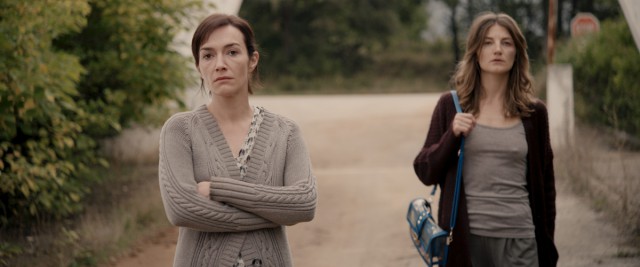
Even though… I liked its visual side as well. The chosen locations…
Yes, thank you. We did a few smart moves in the priorities of the making. We strictly set that we are not going to make a compromise about the casting and locations. We spent a lot of time with finding the right locations, we didn´t make many changes afterwards – we used them as they were. The landscape, interiors, house… But the priority was to make strong emotional scenes in such a short time we have, so… I had good actresses.
What was the inspiration of the movie?
From the beginning I had the idea of two completely different women characters. Totally different women who contiunously realised that they were not so different. And the only thing that could connect this topic was, in my point of view, the typical Balcan issue – a violent man because Balkan is pretty much male-oriented-violent surrounding. So I thought it was a good concept. And I also wanted to make a genre portrait which is not quite common for our cinematography. That were the fundamental ideas of the story.
You said that you are looking forward to your next fiction movie. Have you already thought about it or is it too early to talk about it?
I am very tired this month because we were at three festivals… Of course I have an idea, a vision which I want to develop but it is too early to talk about it. I want to do something different but on the other hand I cannot escape from my cinematic fetisism.
This is your first fiction movie and it has already got to various audiences at festivals all over the world. How do you feel about it?
Yes, definitely. Because short movies are different. You can show it on a festival, you can travel but the connection with the audience is unique when it comes to a fiction film. This was my first coming face-to-face with an audience which doesn´t know anything about my country, me or the film. People just bought the ticket and went to the cinema to watch something. So it was quite stressful but now we had a few festivals so I am quite comfortable with it and I really enjoy it.
By Anna Predmerská

